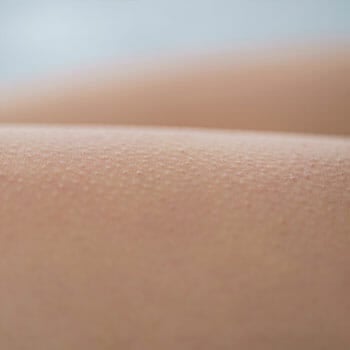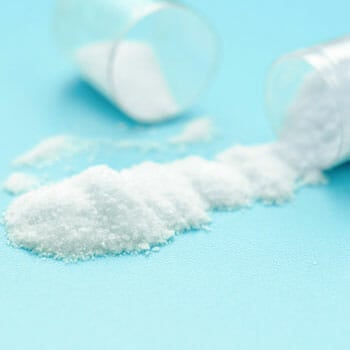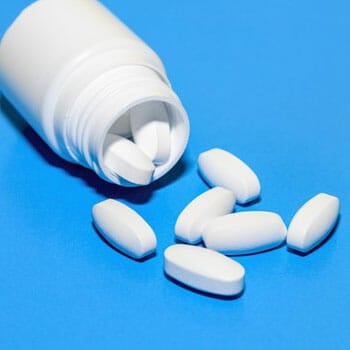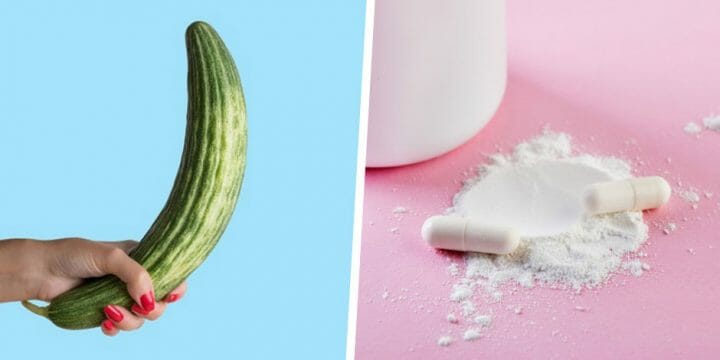As a certified personal trainer, I've encountered many clients chasing that extra edge in their workout, often turning to pre-workout supplements. Along with the expected energy boost, they also experience the infamous "gym itch" or "pre-workout tingles."
But what exactly triggers this sensation, and is it a sign of a good workout to come? Is it possible that some pre-workouts are designed to induce this itch as a way to appear more effective?
In this discussion, we'll examine what causes this common pre-workout side effect, offer tips to minimize its impact, and highlight what to watch out for in supplement ingredients. Continue reading to enhance your knowledge.
Quick Summary
- To understand why pre-workout supplements can cause itching, it's important to know that ingredients like beta-alanine and niacin are common triggers for this sensation.
- Alternatives to beta-alanine in pre-workouts, such as caffeine and L-citrulline, can boost energy without causing skin tingles.
- After taking beta-alanine for four weeks, users may see up to a 64% increase in muscle carnosine levels, which can benefit workout performance.
- Personally, I find that while the itch can be a minor nuisance, the performance benefits of beta-alanine in a pre-workout regimen are worth the temporary discomfort.
Why Does Pre-Workout Make Your Skin Itch?

There are two ingredients common in pre-workouts that make you itch: Beta-alanine and Niacin.
Let’s talk more about these two in the next section.
"Paresthesia" is the proper term for that familiar tingling feeling.
Depending on the pre-workout and sensitivity, it may feel like burning, itchiness, tingling, or numbness.
However it affects you though, it's a distraction you don't necessarily need during a workout.
If your pre-workout causes that tingling sensation, you might be sensitive or have an underlying allergy to its ingredients.
If this is the case, you will probably have to see a physician or switch brands.
Related articles:
Pre-Workout Ingredients That May Cause Itching

Beta-Alanine
According to a study by the National Institute of Health (NIH), beta-alanine is well known to cause acute paresthesia and is incredibly popular in lots of pre-workout formulas [1].
Whether it should be popular is an issue we'll get into a little later.
Beta-alanine is so powerful at creating that tingle side effect that some can even feel it on their lips as they drink it.
"Beta-alanine binds and activates a specific type of receptors in certain dermal neurons. Activation of these neurons causes the sensations of burning, itching, and tingling."
- Dr. Pamela S. Hinton, Ph.D
Niacin
According to NIH, niacin is also known for the side effect of the itch or tingle, which is also sometimes called a Niacin-flush [2].
This ingredient is much cheaper and requires much higher doses to bring on the tingling at over 200% of the recommended daily value. The research into its effect on performance is even less than that for beta-alanine.
We'll get into that further below.
Is Beta-Alanine Good For Pre-Workout?

Yes, Beta-alanine can be suitable for pre-workout supplements, but only if you're working out every day.
The study from the National Library of Medicine, into the efficacy of beta-alanine in pre-workout supplements, show that the non-essential amino acid is only effective at doses of 4-6mg taken every day. Even then, you'll only feel the effect after you've been taking the pre-workout supplements for a few weeks [3].
It isn't required or recommended if you only work out once or twice a week.
However, incorporating the amino acid into your pre-workout routine can provide notable benefits. Essential to muscle repair and recuperation, the fundamental components constituting proteins, amino acids orchestrate a pivotal function.
Mechanism of Action for Enhanced Performance
Through elevating concentrations of the intracellular buffer carnosine, this indispensable amino building block is capable of postponing the commencement of muscular exhaustion, empowering an individual to persevere through strenuous physical exertion with enhanced endurance and vigor.
You should also consider that if the amount is less than the recommended 4mg in most pre-workouts, it's in there to intentionally cause the tingling.
Some pre-workout supplements want their customers to "feel the power," and they're happy to mislead them deliberately.
Is Niacin Good For Pre-Workout?

No, niacin is not good to include in pre-workout supplements.
Considering the research and studies we've looked into, there is no real relevant reason for it to be in any formula other than to elicit paresthesia deliberately.
It dupes the consumer into thinking the pre-workout is more potent than it is.
In my years of coaching, I've noticed that many pre-workout formulas pack more than 200% of the daily value of B-vitamins. While the science doesn't show a performance boost at these levels, they do seem to trigger that familiar tingling sensation, which can be more of a distraction than a benefit.
Now, when optimizing your pre-workout routine and selecting the right supplements, it's crucial to consider specialized formulations explicitly designed to enhance your performance before exercise.
Benefits
Crafted with meticulous care to dynamically energize, intensely sharpen focus, and profoundly amplify endurance during workouts, these pre-workout supplements are formulated to facilitate an optimally transformative experience.
A thoughtfully-formulated pre-workout supplement integrated into your regular exercise regimen could amplify your athletic aptitude and expedite the realization of your fitness aspirations with augmented proficiency.
If you see a pre-workout with this heavy dosage of niacin, I would recommend you avoid it altogether.
Related: Does Niacin Burn Fat?
Alternative Ingredients in Pre-Workouts
In your quest for the ultimate pre-workout supplement, you might be looking for alternatives to the common yet sometimes uncomfortable ingredient, beta-alanine.
While it's known for causing that telltale tingle, there are other ingredients that can boost your workout without this side effect.
- Consider caffeine for a surge in energy and focus, or amino acids like L-citrulline and BCAAs for improved blood flow and reduced muscle fatigue.
- Nitric oxide boosters such as L-arginine enhance muscle oxygenation, and natural extracts like Rhodiola rosea can increase endurance.
Don't overlook the importance of hydration and electrolytes for optimal performance, and for long-term gains, creatine is a proven staple in muscle endurance and energy production.
By choosing a pre-workout formula that combines these elements, you can tailor your supplement intake to your body's preferences, ensuring a comfortable and effective boost to your training regimen without the itch.
How To Prevent Skin Tingles When Taking Pre-Workout

If you find the beta-alanine side effects to be an itch you can't scratch, then there are some ways you can try to lessen the side effects of the supplement.
1. Smaller Dose
If you're using Beta-alanine at all, we recommend taking the supplement at doses of between 4-6mg.
If, however, that is just too much for your body to bear, you could try consistent doses of a smaller amount of the amino acid. You might not get a pronounced supplement to your performance, but the sensation of the itch might be more bearable.
Amino acid plays a crucial role in supporting various bodily functions. When it comes to Beta-alanine supplementation, finding the right dosage is key.
2. Sustained Release

If you are serious about your training and you're in it for the long haul, then a slow-release version of your Beta-alanine supplement could be the best of both worlds.
Beta-alanine is ideal for enhancing performance for those looking to use it daily and slowly release the supplement throughout the day.
Training for a marathon?
Then this is what you want.
3. Look for BetaPrime
It's a relatively new formulation. However, the research promises that the BetaPrime patented blend of nutraceuticals reduces or prevents the paresthesia effect of regular Beta-alanine supplements.
So look for products that use this version of Beta-alanine and give it a try if you want to treat, cure, or prevent the Beta-alanine tingly sensation
FAQs
What Is The Recommended Dose For Beta-Alanine?
The recommended dose for Beta-alanine supplementation is 4-6mg.
Since it is a daily supplement, it's more suited to those who work out consistently.
After taking Beta-alanine for four weeks, you may see around a 64% increase in muscle carnosine levels.
After ten weeks, this can be up to an 80% increase in muscle carnosine.
How Long Does The Beta-Alanine Pre-Workout Itch Last?
The itching sensation from Beta-alanine can kick in around 15 minutes after taking and can last up to half an hour.
The benefits of this supplement slowly build up in the body.
After a while, the body may become more used to the sensation. The itching is unbearable and lasts longer for some people.
In contrast, others only feel a little itchy for a very brief period.
Are There Any Other Side Effects In Taking Beta-Alanine?
Beta-alanine's only natural side effect is the itch, and to be honest, for many, that is more than enough to put them off.
The tingling or itching is why you're here, after all, and the intensity of the sensation varies from person to person.
It's not harmful, and the paresthesia does subside, but you have to ask yourself, is it worth it?
Is Beta-Alanine Supplement Safe?
Yes, this ingredient and most of the pre-workouts that contain it are safe for the most part.
There are exceptions, however.
Supplements like this are not intended to diagnose, treat, cure, or prevent disease and, as such, have not undergone the evaluation of the food and drug administration.
Keep an eye out for telltale signs that you're buying a cheap formula, such as underdosing or the inclusion of known placebo ingredients.
References:
- https://www.ncbi.nlm.nih.gov/pmc/articles/PMC3491570/
- https://www.ncbi.nlm.nih.gov/pmc/articles/PMC2912206/
- https://www.ncbi.nlm.nih.gov/pmc/articles/PMC4501114/
About The Author
You May Also Like







According to my dermatologist, beta-alanine makes me itch. Do you guys know a pre-workout that doesn’t have beta-alanine?
So you can be allergic to pre-workout if you have an allergy to one of its ingredients. We can all be cautious by checking the raw materials used first.